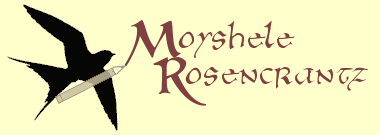An interview recorded by my cousin, which I then transcribed and translated from Hebrew
 |
| Jewish Bazaar, Russia - photo by Gilbert Hovey Grosvenor, 1913. Picture signs are for customers who cannot read |
 |
| Akhaltsikhe, Georgia - Fortress and Mosque |
He said he was indeed an engineer, working in Abast’umani, a small town with convalescent homes for tuberculosis patients, 18 kilometers from Akhaltsikhe, where he lived in a very pleasant house. So I asked him if I could find any work there. He asked, “Can you do metal work for construction?” I said, “Why not? They give me a plan, and according to the plan I’ll do whatever they want.”
So he said, “If so, come, and you’ll get a job as a metalworker. They’re building a sort of a swimming pool there – a big reservoir.”
I was very happy, so the next day I took a special wagon that takes you all the way to Abast’umani, leaving at one o’clock in the afternoon. We drove on, and arrived 18 kilometers later just before evening, or late in the afternoon – anyway, it was getting late. So I got the job with the building crew from the engineer, and he said “Come to work tomorrow morning.” So I said, “But I didn’t bring my suitcase. I wasn’t 100% sure that I’d get accepted, or that I’d like it here. I wanted to look around first.” So he said, “Ok then, go back to get your stuff, and come back tomorrow. You’ll start working a day later.”
 |
| Horse-drawn wagon, Warsaw, September 1939 |
As I lay there, I suddenly heard from the other side of the stream a loud commotion, and a throng of youths started running and singing. I decided to go to see what the commotion was all about. And it turns out it was a gathering of the Komsomol, the communist youth movement.
So I asked the secretary there if I could maybe sleep in their club house instead of sleeping outside. And he said, “Why not? After the people here disperse you can lie down on one of the benches.”
 |
| Abast'umani, tuberculosis sanatoriums in the Georgian mountains - the baths (from this blog) |
So I turned to the man who worked in the Sanatorium and asked him, “Tell me please, mister, how does one go about getting a job there?”
He answered, “What do you mean? You go to the medical work office, and there they have a special department, and you ask them. And they’ll tell you what there is to do. They’ll give you a note.” And he gave me their address.
Nu, I went there just after eight o’clock in the morning, and I met the department’s secretary, and told him I wanted to work in the sanatoriums. So he said, “Fine, they need workers there.” Well, I kept working in these sanatoriums, first one, than another, than a third, for a total of eight months. Then I got two weeks’ holidays on the first of May. And I was supposed to return to work on the sixteenth.
 |
| Abast'umani, tuberculosis sanatoriums in the Georgian mountains - the sanatorium constructed in 1924, so presumably the one Lova worked on (from here) |
 |
| “And I knew that right on the other side of the snow was the Turkish border” - picture of mountins near Dugur, Turkey (nowadays Posof) |
 |
| A map of Georgia showing Akalts'ikhe, Abst'umani and Posof (Dugur) |
Continued in part 3...

No comments:
Post a Comment